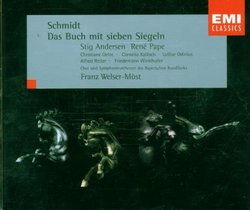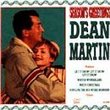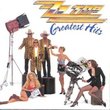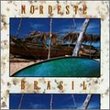| All Artists: Franz Welser-Most, Franz Schmidt Title: The Book of the Seven Seals Members Wishing: 0 Total Copies: 0 Label: Angel Records Release Date: 10/6/1998 Genre: Classical Styles: Opera & Classical Vocal, Historical Periods, Modern, 20th, & 21st Century Number of Discs: 2 SwapaCD Credits: 2 UPC: 724355666024 |
Search - Franz Welser-Most, Franz Schmidt :: The Book of the Seven Seals
 | Franz Welser-Most, Franz Schmidt The Book of the Seven Seals Genre: Classical
Franz Schmidt's magnum opus oratorio adapting the last book of the New Testament, the Revelations of St. John (and apocalyptic revelations they were), has been an imposing mystery to American music lovers. Rarely is it enc... more » |
Larger Image |
CD DetailsSynopsis
Amazon.com Franz Schmidt's magnum opus oratorio adapting the last book of the New Testament, the Revelations of St. John (and apocalyptic revelations they were), has been an imposing mystery to American music lovers. Rarely is it encountered in concert, and recordings have featured intriguing collections of musicians (tenor Fritz Wunderlich in one, conductor Dmitri Mitropoulos in another), though often in less-than-great sound and without English texts. This is the first recording that could unlock the seals for non-Germanic listeners: it has all the surface polish this music craves, while conductor Franz Welser-Most loves the music and knows it well. As dictated by the composer, St. John is sung by a vigorous heldentenor, Stig Andersen. Rene Pape is the voice of the Lord--and sounds like it. But with so much help from performers, the piece is likely to remain a cult item. Its dense, wordy text floats like corks on the chromatic salt sea of Schmidt's orchestration, guided by a committed, unsentimental sense of dramaturgy but not much sense of melody. --David Patrick Stearns Similarly Requested CDs
|
CD ReviewsThe last Great Oratorio V. Wilson | Cambridge, MA United States | 02/14/2000 (5 out of 5 stars) "If there's one thing this overwhelmingly powerful oratorio proves, it's "don't mess with the Big Man upstairs!" In setting the nearly-complete Apocalypse as revealed to John the Divine, the Austrian composer Franz Schmidt produced a masterpiece and, perhaps, the last great oratorio.This is music that really ought to be in your collection. It is an easy piece to follow, as it is laid-out in the classic oratorio design, with John the narrator introducing the various events which occur as the seven seals are opened. Musically, Schmidt doesn't move much past chromatic late romanticism.However, lest I make it sound like a retread of earlier pieces, I must reiterate that this is strong stuff. Schmidt wrote it right before World War II as he was dying of cancer and it has a truly prophetic feel about it.The music for the Four Horsemen sequence is amazing. The War sequence contrasts a lamenting women's chorus with a brutal, vicious men's chorus based on a rhythmic figure that is pounded home. It's truly terrifying. This is followed by a heartbreaking mother/child duet describing the Horseman of Famine. The last horseman, Death, features two worn-out soldiers commenting about the last horsemen to music which aptly describes a silent, body-ridden battlefield.The Amazon reviewer suggests that this is tuneless, but that is inaccurate. The melodies used are designed for contrapuntal development of which there is plenty. You won't soon forget the War chorus, I guarantee.This performance is terrific, although with such a complicated piece some of the details get lost in the shuffle. Nevermind. Get this and be blown away by the end of the world and the coming heavenly kingdom. The power (& terror) of this music might just make you reconsider religion."
|

 Track Listings (14) - Disc #1
Track Listings (14) - Disc #1








